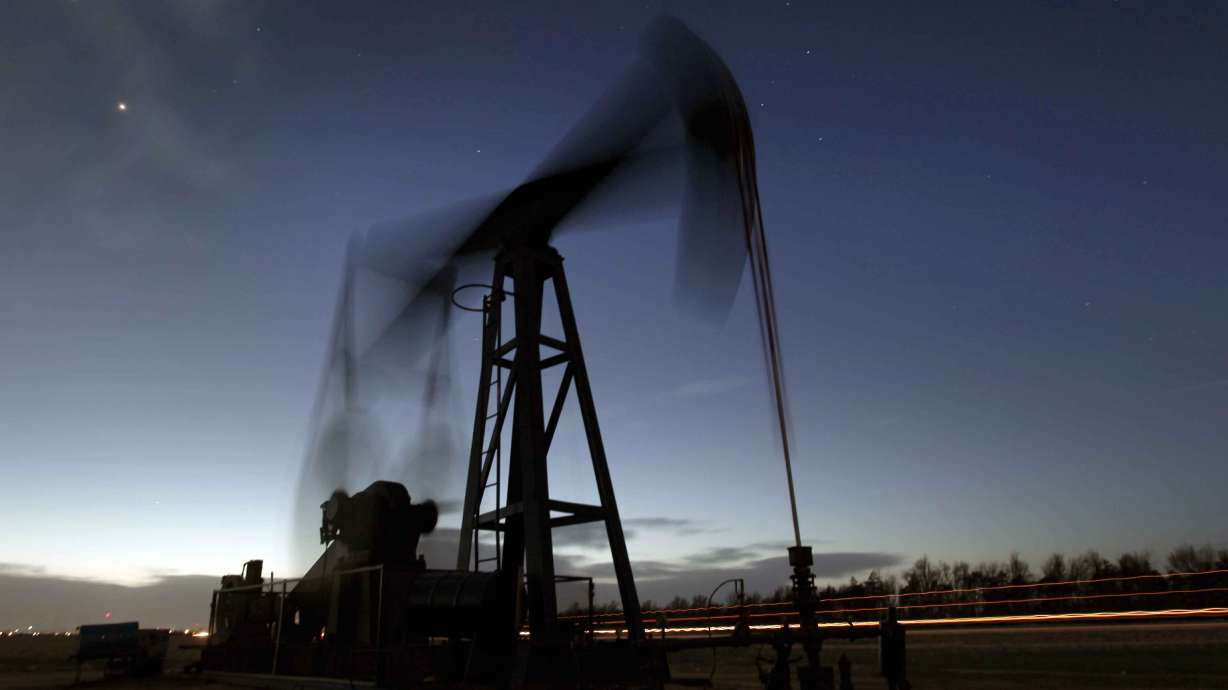Estimated read time: 2-3 minutes
This archived news story is available only for your personal, non-commercial use. Information in the story may be outdated or superseded by additional information. Reading or replaying the story in its archived form does not constitute a republication of the story.
FRANKFURT, Germany — All 31 member countries of the International Energy Agency have agreed to release 60 million barrels of oil from their strategic reserves "to send a strong message to oil markets" that there will be "no shortfall in supplies" as a result of Russia's invasion of Ukraine, the group said Tuesday.
The IEA board made the decision at an extraordinary meeting of energy ministers chaired by U.S. Energy Secretary Jennifer Granholm. Besides the United States, other members of the organization include Germany, France, the United Kingdom, Japan and Canada.
IEA members hold emergency stockpiles of 1.5 billion barrels of oil. The release amounts to 4% of stockpiles, or roughly 2 million barrels per day for 30 days.
"The situation in energy markets is very serious and demands our full attention," IEA executive director Fatih Birol said. "Global energy security is under threat, putting the world economy at risk during a fragile stage of the recovery."
Russia plays an outsized role in global energy markets as the third-largest oil producer. Its exports of 5 million barrels per day of crude amount to about 12% of the global oil trade. Some 60% goes to Europe and another 20% to China.
So far, U.S. and European sanctions have not barred oil or gas exports and have included exceptions for transactions to pay for oil and gas. Western leaders are reluctant to restrict Russian oil exports at a time when global energy markets are tight and high prices are fueling inflation in developed economies.
But Russia's invasion has still shaken markets globally. On Tuesday, oil prices soared Tuesday, with U.S. benchmark crude surpassing $100 per barrel — its highest price since 2014.
It's only the fourth time in history that the IEA has done a coordinated drawdown since the reserves were established in the wake of the Arab oil embargo in 1974.
From the U.S. perspective, the price of crude oil determines a big portion of what drivers pay to fill up their cars with gasoline. The national average for a gallon of gas is $3.61, which is 26 cents more than a month ago and 90 cents more than a year ago, according to motor club federation AAA.
In November, U.S. President Joe Biden announced a release of 50 million barrels of oil in coordination with other energy-importing countries, but the measure had only a fleeting impact on oil prices, which have continued to rise.








